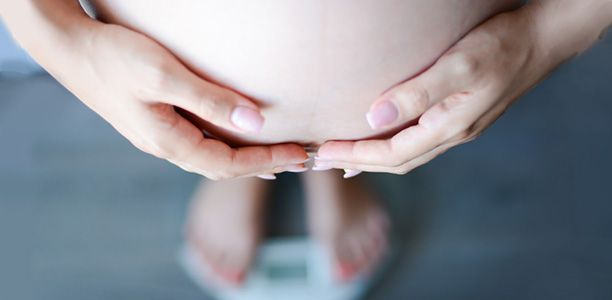Pre-pregnancy obesity and excessive weight gain during pregnancy was associated with an increased risk of the child becoming overweight at age 2. The study also found breastfeeding for at least six months helped reduce the likelihood of a child being overweight at age 2.
In the past 30 years, obesity has more than doubled in children and quadrupled in adolescents, with more than one-third of children and adolescents found to be overweight or obese in 2012, according to the Centers for Disease Control and Prevention.
“Childhood obesity is linked with adult obesity and long-term negative health outcomes, which is why it is important to explore which factors may contribute to excessive weight during early childhood,” explained the study’s lead author, Anny H. Xiang, PhD, of the Kaiser Permanente Southern California Department of Research & Evaluation. “Our study findings highlight the need for more public health efforts to reduce maternal obesity, appropriate gestational weight gain and to promote breastfeeding.”
Although previous studies have identified a link between maternal obesity and/or excessive gestational weight gain and long-term obesity risk in children, the Kaiser Permanente study included women and children who received standard medical care and it examined the interplay among all four factors associated with childhood obesity: pre-pregnancy obesity, gestational weight gain, gestational diabetes and breastfeeding.
The research team found:
- A woman being obese (BMI of 30.0 or higher) prior to getting pregnant increased the odds of her child being overweight at age 2 by more than two-fold compared to women who had a normal pre-pregnancy weight (BMI between 18.5 and 25), after adjusting for weight gain during pregnancy, gestational diabetes and breastfeeding.
- A woman being overweight (BMI between 25.0 and 29.9) prior to pregnancy was associated with 50% increased odds of her child being overweight at age 2.
- Excessive weight gain during pregnancy was associated with 23% increased odds of a child being overweight at age 2 compared to women who had healthy weight gain during pregnancy after adjusting for pre-pregnancy weight, gestational diabetes and breastfeeding.
- Breastfeeding for at least six months was associated with a 24% reduction for the odds of a child being overweight at age 2 regardless of a mother’s pre-pregnancy weight, gestational diabetes or excessive weight gain during pregnancy.
The study included 15,710 women who delivered babies at Kaiser Permanente medical facilities in Southern California in 2011. Excessive weight gain was defined according to Institute of Medicine guidelines, with normal-weight women gaining more than 35 pounds, overweight women gaining more than 25 pounds and obese women gaining more than 20 pounds during their pregnancy. Children were considered overweight at age 2 if their BMI was greater than the 85th percentile for their age and sex, based on growth charts from the Centers for Disease Control and Prevention.
(Source: Kaiser Permanente)










